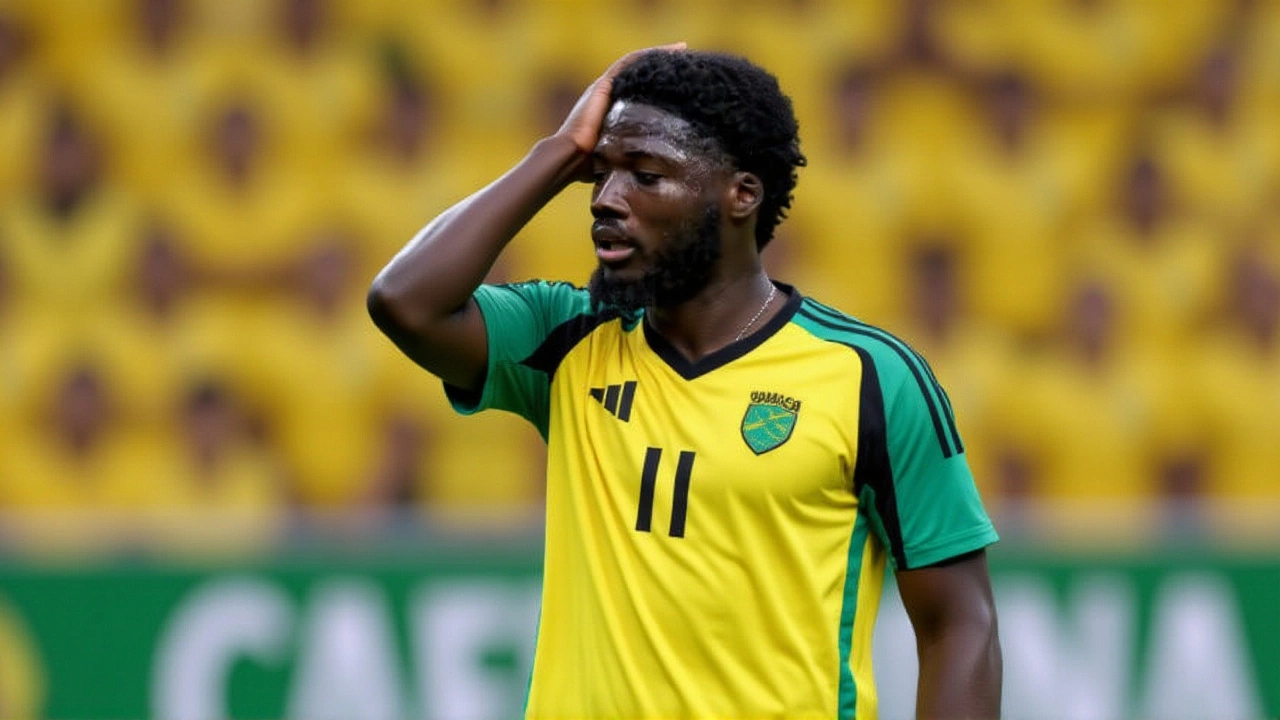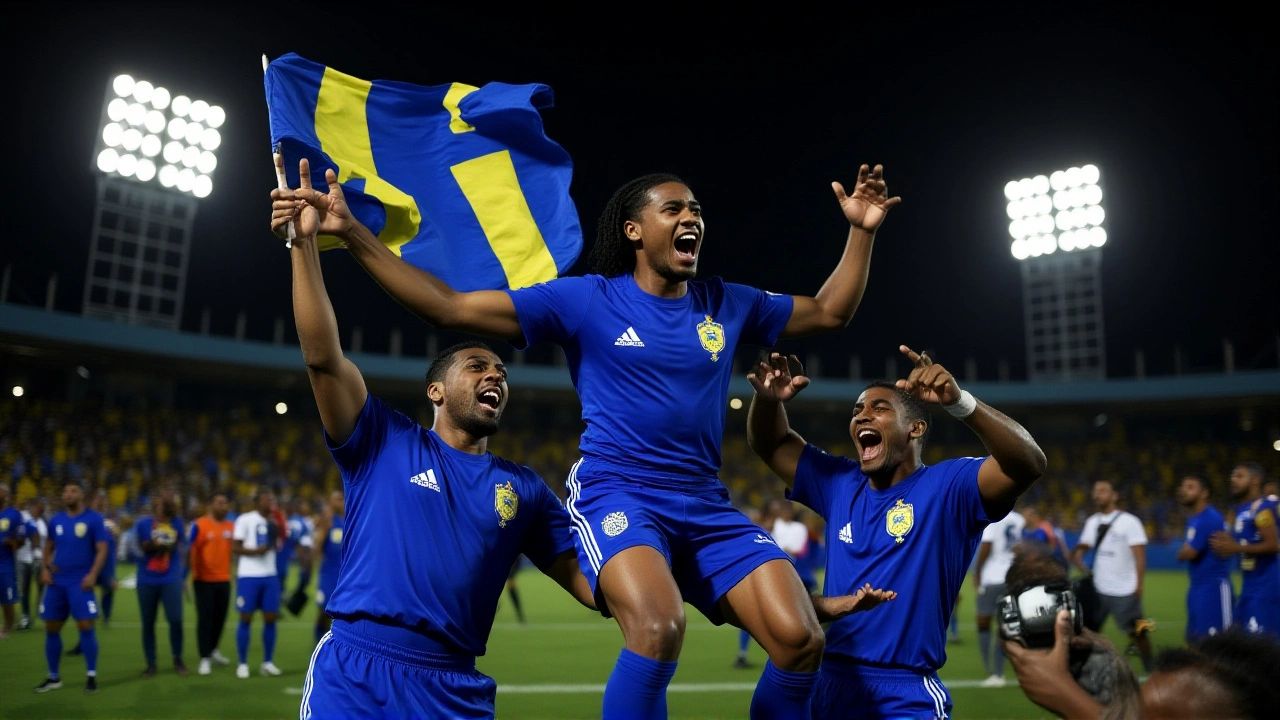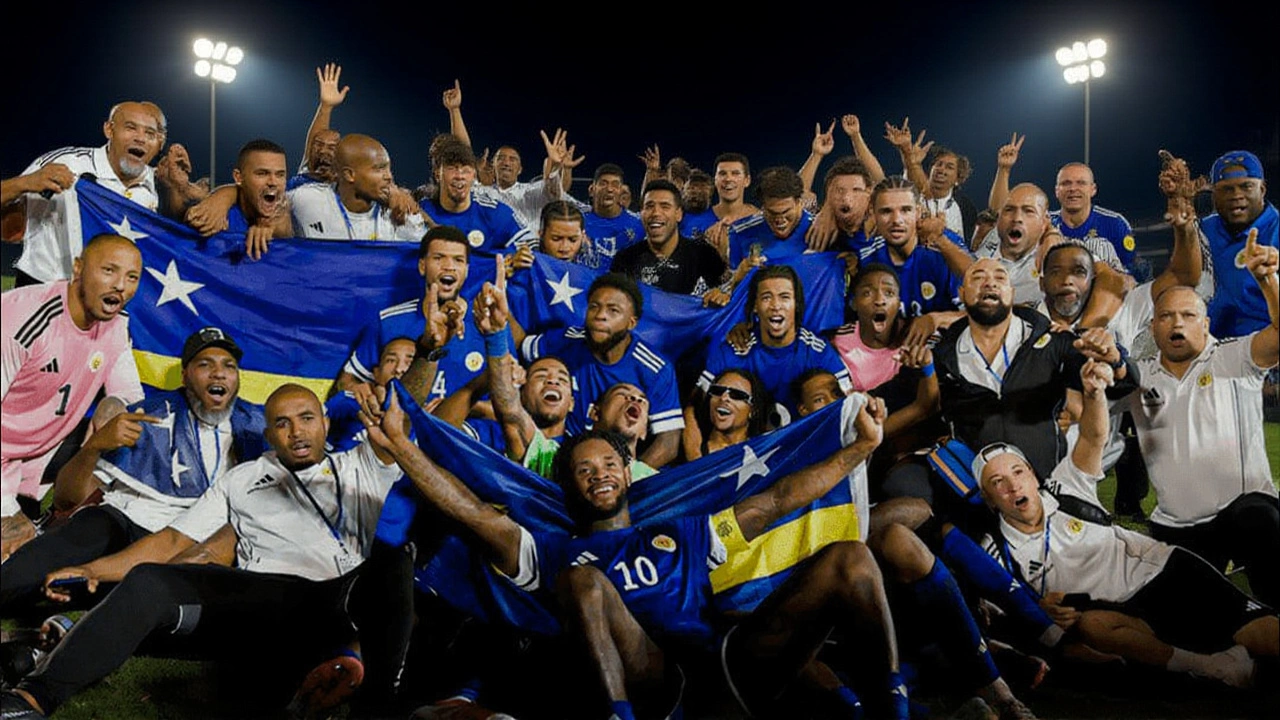The final whistle blew at 11:18 AM UTC on November 19, 2025, and suddenly, the world took notice. Curaçao, a Caribbean island with fewer than 170,000 people, had just beaten Jamaica 1-0 in a rain-slicked, nerve-shredding CONCACAF World Cup qualifierNational Stadium in Kingston — and in doing so, became the smallest nation ever to reach a FIFA World CupMexico, United States, and Canada. No one saw it coming. Not even the players.
A Nation That Wasn’t Supposed to Be Here
Curaçao isn’t just small — it’s tiny by global standards. At 444 square kilometers, it’s barely bigger than Manhattan. Its population hovers around 165,000. For comparison, the city of Miami has more people. Yet here they were, standing atop the CONCACAF qualifying ladder, having outlasted nations with ten times their population. The win wasn’t just a victory; it was a rebellion against logic. For decades, Caribbean football meant Trinidad and Tobago, Jamaica, or maybe Haiti. Curaçao? They were the underdogs’ underdogs. Their national team, the Tricolors, wore blue, white, and yellow — the same colors as their flag — and played with a grit that belied their size.
The Goal That Changed Everything
The match was a cagey, physical affair. Halftime arrived scoreless, Kingston’s crowd silent with tension. Then, in the 63rd minute, everything shifted. Hansen, a 26-year-old midfielder who plays for a second-division Dutch club, received the ball just outside the box. He feinted left, slipped past two defenders, and fired low — the ball kissed the post, bounced off the keeper’s fingertips, and rolled in. The stadium went quiet. Then, chaos. Abyspo, the towering center-back, leapt into the air like he’d just won the lottery. Russell, the winger who’d been marked by three men all night, collapsed to his knees, sobbing. The goal wasn’t pretty. It was perfect.
“We Are Small, But We Are Big at Heart”
Post-match, the emotional outpouring was raw. One player, face streaked with sweat and tears, told AFP: “I didn’t expect this. I thought Jamaica was too strong. But we did it. Finally, we did it.” Another, arms wrapped around his coach, added: “We will show everyone that we are small, but we are big at heart.” Those words echoed far beyond the pitch. In Willemstad, the capital, people poured into the streets. Bars emptied. A single car horn blared for ten straight minutes. A grandmother in the island’s rural south turned on her radio, heard the news, and screamed so loud her neighbors came running — thinking the house was on fire.

What This Means for Caribbean Football
Curaçao’s qualification isn’t just feel-good storytelling. It’s a seismic shift. Before this, only Trinidad and Tobago — with a population over eight times larger — had ever qualified from the Caribbean with fewer than 200,000 residents. Now, Curaçao has shattered that ceiling. The CONCACAF region, which includes 41 nations from Canada to Suriname, has long been dominated by the U.S., Mexico, and Costa Rica. But this win proves depth is growing. Smaller nations are learning. Investing. Training smarter. Curaçao’s youth academy, funded largely by local businesses and Dutch football partnerships, has produced over a dozen professionals in Europe’s lower leagues. This team didn’t get lucky. They got built.
The Road to 2026
The 2026 World Cup will be the first with 48 teams, expanding from 32. That’s more room for the unexpected. Curaçao will join debutants like Cape Verde, Jordan, and Uzbekistan in what’s being called the most diverse World Cup in history. Their group stage opponents? Still unknown. But one thing’s certain: they won’t be underestimated again. The team’s coach, still unnamed publicly, has already begun scouting opponents in Europe. Players are being offered professional contracts. One, Bakuna, already signed with a Belgian second-tier club days after the win. The island’s government announced a $2.3 million fund for youth football development — money that will be matched by the Dutch Football Association.

Why This Matters Beyond the Pitch
Curaçao is an autonomous country within the Kingdom of the Netherlands, not a sovereign state. But on November 19, it didn’t feel like a territory. It felt like a nation. For a place that’s often overlooked — geographically, politically, culturally — football became its voice. The win sparked a surge in national pride, tourism inquiries, and even a petition to raise the Tricolors on the UN flagpole. “This isn’t about football,” said Dr. Lina Vos, a cultural historian in Willemstad. “It’s about identity. For the first time, the world saw us not as a dot on the map, but as a force.”
Frequently Asked Questions
How did Curaçao manage to qualify despite having such a small population?
Curaçao invested heavily in youth development over the past 15 years, partnering with Dutch clubs to train players from age 10. Their academy system produced a generation of technically skilled, tactically aware athletes who now play in Europe’s lower leagues. Unlike larger nations that rely on star power, Curaçao built a cohesive unit — disciplined, resilient, and deeply connected to their identity. Their win wasn’t luck; it was a long-term strategy paying off.
Who are the key players on Curaçao’s 2026 World Cup squad?
While the final roster isn’t confirmed, key contributors in the Jamaica qualifier include midfielder Hansen, who scored the decisive goal, defender Abyspo, and winger Russell. Goalkeeper Makuna and fullback Bakuna have also been consistent starters. Most play in the Netherlands, Belgium, or Cyprus, but all carry Curaçaoan heritage.
What’s the significance of Curaçao qualifying over Jamaica?
Jamaica is a traditional Caribbean powerhouse, having reached the 1998 World Cup and consistently ranked higher in FIFA standings. Beating them in a winner-takes-all qualifier — on their home soil — was like a high school team defeating the NBA champions. It wasn’t just a win; it was a symbolic overturning of hierarchy. Jamaica’s fans were stunned. Curaçao’s win proves that in football, heart and organization can outlast size and reputation.
Will Curaçao have a realistic chance at advancing in the 2026 World Cup?
Advancing from the group stage will be extremely difficult — they’ll face giants like the U.S., Mexico, or Germany. But history shows underdogs can surprise. In 2002, Senegal beat France 1-0 in the opener. In 2018, Iceland held Argentina to a draw. Curaçao doesn’t need to win — just compete. A single point, even a draw, would be a triumph. Their goal isn’t the trophy; it’s to prove they belong.
How has the Dutch government responded to Curaçao’s qualification?
The Netherlands’ football association (KNVB) has publicly praised Curaçao’s achievement and pledged to continue technical support. While Curaçao isn’t part of the Dutch national team, the KNVB has funded coaching clinics and youth exchanges since 2015. Dutch Prime Minister Mark Rutte sent a congratulatory message, calling it “a moment of unity for the entire Kingdom.” No official merger of teams is planned — but the bond between them has never been stronger.
What’s next for Curaçao’s football program?
With $2.3 million in new funding, Curaçao plans to build its first-ever national training complex in Willemstad, complete with synthetic pitches, sports science labs, and a youth academy for girls. They’re also negotiating a TV rights deal with a global streaming platform to broadcast their matches worldwide. The dream isn’t just to play in the World Cup — it’s to be remembered as the team that changed the game for small nations.
